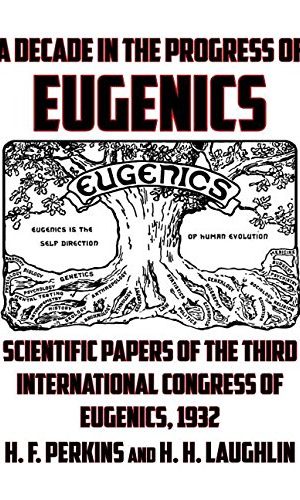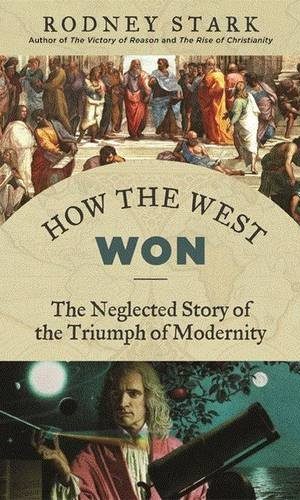Description
What does it mean to be white?
Many years ago, on my old blog In Mala Fide, I argued that a political movement focused on white identity was dead in the water because whites don’t define themselves primarily by their race, unlike blacks. One of my readers responded by stating that whites already have been defined by their race, but in the negative, a fact that’s evident by the anti-white cultural bilge that we wade in daily.
One of the fundamental failures of the alt-right was that it tried to make race into the bedrock of social unity, largely due to the rootlessness of its leaders. Humans filter identity through a series of concentric circles, with their family at the center, gradually fanning out into wider social circles such as church/neighborhood, city/town, state/province, and nation, with race being one of the outermost—and consequently weakest—circles.
People who have weak attachments to their family, region, or nation cling to race as their focus of identity, which is like trying to build a sandcastle at high tide. Richard Spencer, for example, is a rootless man who has a poor relationship with his family (to the point where his own father is siding against him in his divorce proceedings) and lacks any attachment to his hometown (he was born in Boston and raised in Dallas, a city full of rootless transplants), state (his family has no roots in Texas), and country (he hates American nationalism and culture). No surprise that a man with no identity of his own failed at building an identitarian movement.
Despite this, race still matters. Awesomely White explains why. A treatise on the nature of whiteness and European identity, Tony Martel’s book is a well-articulated hybrid of philosophy, politics, and personal anecdote. While rough around the edges in some respects, Awesomely White’s engaging, even-handed approach makes it a worthwhile read and the kind of rare book that can actually change people’s thinking.
Feeling Awesomely White
The “protochapter” of Awesomely White lays out what separates the book from countless other tomes extolling the virtues of “Western civilization”: those books either deny or minimize the role of whites—Europeans and their descendents—in creating modern civilization. Martel’s book does not aim to be a hagiography of whiteness, but to critically examine what separates whites from other races:
There are so many books out there about the accomplishments of white people. The last few years have witnessed a booming business on the greatness of whites. My search brought me to so many books reveling in the glories of the white man. Yet not a single one of them mentioned him. Instead, they talked about the “West” or “Western civilization.” Somehow, the people that populate those places were absolutely irrelevant to its achievements. All that matters, apparently, is its location on the map. The West would have turned out exactly the same if Asians were living there instead of in the East. Western civilization would have done all it did if Amerindians populated the place instead of the other side of the Atlantic. What utter nonsense.
Martel is a writer by trade, not an academic, and as a result, his book has a breezy style that makes it instantly readable. Awesomely White’s prose reads low but thinks high, communicating sociological and historical concepts in the voice of the everyman. Like most self-published authors, Martel could have used an editor to lean up some of his prose’s quirks—his fondness for sentence fragments is a case in point—but these are minor issues, and you’ll have a hard time not inhaling the book in a session or two.
Awesomely White takes an autobiographical approach to analyzing whiteness, as Martel intersperses original research on European history with stories from his personal life. In particular, the chapters “The Destruction of My World” and “Finding a New World” examine Martel’s liberal upbringing and his gradual immersion into the dissident right, as his youthful anti-racist ship was broken on the rocks of cultural Marxism:
Every morning, I would wake up in my back bedroom and open the French doors that lead into the garden. Each night, I would enjoy the delicious variety of cheeses for dessert. In the afternoon, I would explore the city or relax in the public gardens where Edith Wharton’s house used to be. And at noon, I would head to the international school, where I befriended fellow students from England, Ireland, Denmark, and Switzerland.
One particularly profound section of the book discusses Martel’s experience studying abroad in France. Despite being a native-born American with poor French, he forms a bond with his host family and feels a gradual connection with the people around him. I experienced something similar when I relocated to Hungary two years ago: an instinctive comfort knowing that I was around people I shared an (admittedly distant) cultural lineage with. I felt an even stronger pull in Poland, where one-quarter of my ancestors hail from.
In contrast, when I visited the Philippines, I couldn’t escape my foreignness or whiteness no matter what I did, and every second I spent there merely reinforced that I was a permanent stranger in their country. Race is a reality that everyone on the planet save for whites takes for granted, but it’s a reality that reasserts itself as the liberal order chokes on its own excesses. Emmanuel Macron was actually right when he called nationalism the enemy of patriotism. Patriotism is merely loyalty to a state, which is why the Soviet Union and other communist states promoted it and why multiracial liberals promote it now; nationalism is loyalty to a people.
Martel approaches white identity from a dramatic and historical perspective, comparing his embrace of his European roots with Benjamin Disraeli’s embrace of his Jewish heritage after touring Palestine. To Martel, whiteness isn’t merely a skin color or bragging rights; it’s a connection to a heritage that extends back across space and time. It’s this connection to his heritage that enabled Martel to survive through some truly harrowing episodes, such as a stint with homelessness:
To win those battles and discover those places required overcoming incredible hardship. They had to keep going, to keep fighting. They wouldn’t have survived if they hadn’t. To remember what they endured can inspire you in perilous times. I can attest to this. For a year and a half, I lived out of my car. During the winter nights, as snow accumulated on the windows to bury me in a metal tomb, I would shiver under two blankets until the cold became too unbearable. I’d turn the car on and run the heat for a few minutes. Three or four times I’d have to do this before morning. Parts of my body would often be dark red and burning from frostbite. One of the things that kept me going was the memory of those white men who had also endured extreme cold. Shackleton and his crew in Antarctica were constantly on my mind during those freezing nights when sleep was as distant as a bed. Their feet had been as wet as mine. Their hands had been as cracked as mine. Their fires provided temporary warmth like my heaters. They had survived. So could I.
It’s anecdotes like these that lend dramatic weight to Awesomely White’s more polemical sections. Martel goes over familiar concepts such as white privilege and the Holocaust industry in an evenhanded fashion, without resorting to conspiracy theorizing or racial slurs. At the same time, he doesn’t grovel to an imaginary nonwhite audience with moronic statements like “I believe in nationalism for everyone!” (a tenth-generation Xerox of Alain de Benoist’s concept of “ethnopluralism”), meaning that Awesomely White stands a good chance of getting people to change their minds on race.
Fear of a White Planet
While relatively brief, Awesomely White is devoid of filler and tackles its main arguments with conciseness and clarity. However, readers looking for a more philosophically-inclined tome might find fault with Martel’s reliance on personal stories, while his reliance on sentence fragments could be a deal breaker for grammar Nazis.
Ultimately, however, these issues are trivial. Awesomely White’s blend of factual veracity and personal narrative make it a gem of modern right-wing thought. Martel’s book is worth a read for the seasoned identitarian, but it also makes a great read for normies who have yet to realize the importance of race. In a sea of wignat onanism and conservative cuckery, Awesomely White stands tall as an articulate defense of whiteness and European identity.






Reviews
There are no reviews yet.